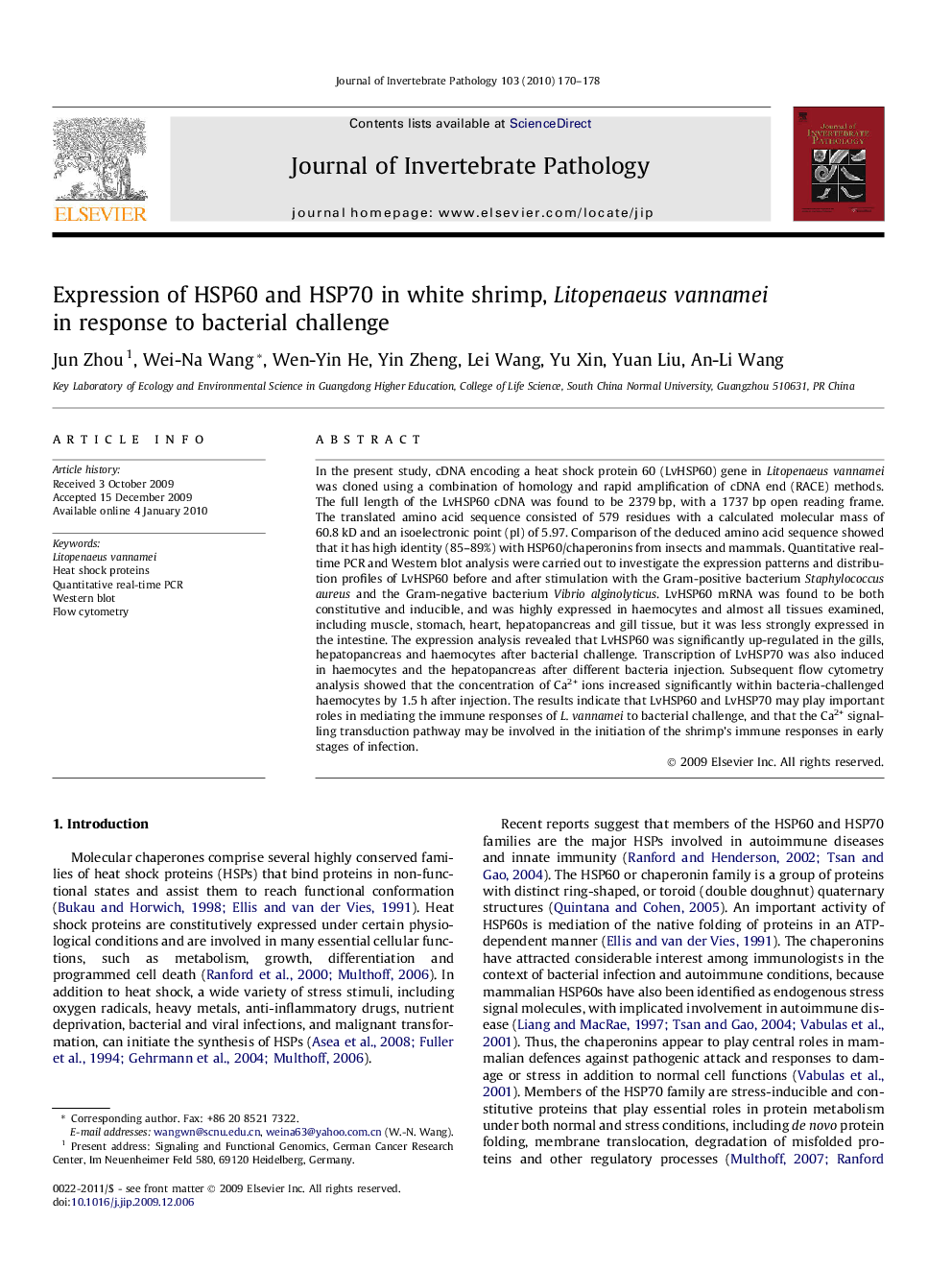| Article ID | Journal | Published Year | Pages | File Type |
|---|---|---|---|---|
| 4558301 | Journal of Invertebrate Pathology | 2010 | 9 Pages |
In the present study, cDNA encoding a heat shock protein 60 (LvHSP60) gene in Litopenaeus vannamei was cloned using a combination of homology and rapid amplification of cDNA end (RACE) methods. The full length of the LvHSP60 cDNA was found to be 2379 bp, with a 1737 bp open reading frame. The translated amino acid sequence consisted of 579 residues with a calculated molecular mass of 60.8 kD and an isoelectronic point (pI) of 5.97. Comparison of the deduced amino acid sequence showed that it has high identity (85–89%) with HSP60/chaperonins from insects and mammals. Quantitative real-time PCR and Western blot analysis were carried out to investigate the expression patterns and distribution profiles of LvHSP60 before and after stimulation with the Gram-positive bacterium Staphylococcus aureus and the Gram-negative bacterium Vibrio alginolyticus. LvHSP60 mRNA was found to be both constitutive and inducible, and was highly expressed in haemocytes and almost all tissues examined, including muscle, stomach, heart, hepatopancreas and gill tissue, but it was less strongly expressed in the intestine. The expression analysis revealed that LvHSP60 was significantly up-regulated in the gills, hepatopancreas and haemocytes after bacterial challenge. Transcription of LvHSP70 was also induced in haemocytes and the hepatopancreas after different bacteria injection. Subsequent flow cytometry analysis showed that the concentration of Ca2+ ions increased significantly within bacteria-challenged haemocytes by 1.5 h after injection. The results indicate that LvHSP60 and LvHSP70 may play important roles in mediating the immune responses of L. vannamei to bacterial challenge, and that the Ca2+ signalling transduction pathway may be involved in the initiation of the shrimp’s immune responses in early stages of infection.
